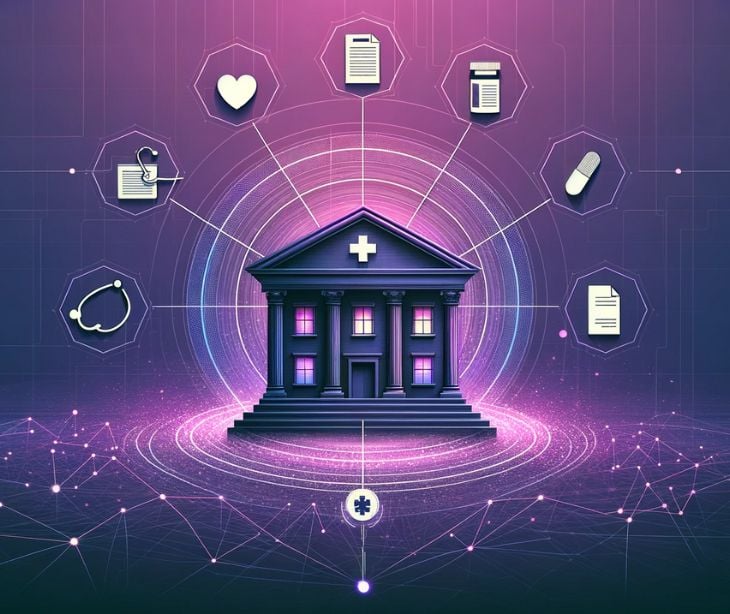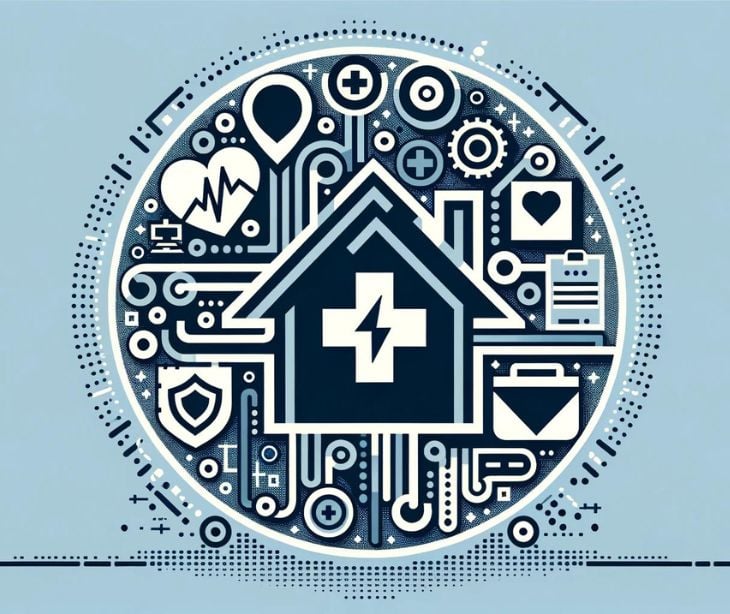
A healthcare clearinghouse is a critical intermediary in the claims process, ensuring accuracy and efficiency. By standardizing health information and facilitating communication between healthcare providers and health plans, clearinghouses assist in streamlining operations and reducing errors. HIPAA defines a healthcare clearinghouse as a public or private organization that carries out specific tasks in connection with the handling of health information.
Understanding the definition of a healthcare clearinghouse
According to the HIPAA Administrative Simplification Regulations, a healthcare clearinghouse is "a public or private entity, including a billing service, repricing company, community health management information system or community health information system, and 'value added' networks and switches, that does either of the following functions: "
Standardization of health information
A clearinghouse processes the health information received from another entity in a nonstandard format or containing nonstandard data content into standard data HIPAA elements. This ensures that the information is in a consistent format that can be easily understood and processed by healthcare providers and health plans.
Note: As a covered entity, any PHI transmitted by the clearinghouse must use secure communication methods, like HIPAA compliant email.
Conversion of standard transactions
A clearinghouse also receives standard transactions from another entity and processes health information into a nonstandard format or nonstandard data content for the receiving entity. This conversion is necessary when healthcare providers and health plans use incompatible software systems, allowing seamless communication between parties.
The role of a healthcare clearinghouse
A healthcare clearinghouse acts as a middleman between healthcare providers and health plans. Its primary function is to review and validate healthcare claims submitted by providers before forwarding them to the respective health plans for payment. This process helps identify and rectify any errors or inconsistencies in the claims, ensuring accurate and timely reimbursement.
The need for clearinghouses in the claims process
Healthcare clearinghouses are still necessary despite HIPAA's goal of standardizing the claims process. With multiple medical data code sets such as the ICD-11, which has over 68,000 codes for different illnesses and diseases, errors can occur. Additionally, the variations in software systems used by healthcare providers and health plans further complicate the claims process.
Benefits of using a healthcare clearinghouse
The utilization of a healthcare clearinghouse offers several benefits to both healthcare providers and health plans. By acting as an intermediary, a clearinghouse helps streamline the claims process and reduce inefficiencies. Let's explore some of the key advantages:
Error reduction
Clearinghouses review claims for errors, ensuring the submitted information is accurate and complete. By catching and correcting errors early on, healthcare providers can avoid claim rejections and delays in payment.
Standardization
Clearinghouses play a vital role in standardizing health information. They convert nonstandard data into standard formats, enabling seamless communication between healthcare providers and health plans.
Compatibility
Incompatible software systems can hinder the exchange of information between healthcare providers and health plans. Clearinghouses bridge this gap by converting data into formats compatible with the receiving entity's software.
Accelerated payments
By ensuring the accuracy and completeness of claims, clearinghouses accelerate the payment process. Timely reimbursements contribute to improved cash flow for healthcare providers, particularly those operating on tight budgets.
Compliance considerations for clearinghouses
Health plans and healthcare providers subject to HIPAA must know the compliance considerations associated with healthcare clearinghouses. A clearinghouse can qualify as either a covered entity or a business associate.
Covered entity vs. business associate
A clearinghouse qualifies as a covered entity when it engages in business-to-business transactions as defined by HIPAA. However, if a healthcare provider conducts its clearinghouse activities and is contracted by another covered entity to perform clearinghouse functions on its behalf, the provider becomes a business associate of the contracting entity. In such cases, a business associate agreement must be in place to ensure compliance with HIPAA requirements.
Read more: What are healthcare clearinghouses?
In the news
Change Healthcare, one of the largest healthcare clearinghouses globally, handles around 15 billion medical claims annually, constituting nearly 40% of all claims. In February, a cyberattack disrupted Change Healthcare, a subsidiary of the global health giant UnitedHealth. This incident caused a backlog of unpaid claims, leading to significant cash flow issues for doctors' offices and hospitals and threatening patient access to care.
Subsequent investigations revealed that millions of Americans might have had their sensitive health information leaked onto the dark web, even though UnitedHealth paid a ransom to the cyber attackers.
FAQs
What is the primary function of healthcare clearinghouses?
The primary function of a healthcare clearinghouse is to review and validate healthcare claims from healthcare providers before forwarding them to health plans for payment. Healthcare clearinghouses prescreen medical claims; once done, the clearinghouse securely transmits the data to the necessary party over a HIPAA compliant connection. The process identifies and rectifies errors and inconsistencies, ensuring accurate and timely reimbursement.
Are healthcare providers required to use a clearinghouse?
No, healthcare organizations are not required to use clearinghouses to process claims. Many choose to work with clearinghouses because of the benefits offered, such as:
- Eligibility verification
- Electronic remittance advice
- Ability to handle medical claims in a variety of forms
When does a clearinghouse qualify as a covered entity?
A clearinghouse is a covered entity when it processes health information for another legal entity.
The U.S. Department of Health & Human Services points to an interactive PDF flowchart from the Center for Medicare and Medicaid Services to determine if an organization is a covered entity.
Subscribe to Paubox Weekly
Every Friday we bring you the most important news from Paubox. Our aim is to make you smarter, faster.




